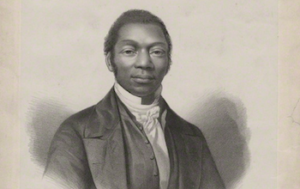
Rev. James Pennington
This date celebrates the birth of the Reverend James Pennington in 1807. He was a Black educator, clergyman, orator, author, and abolitionist.
James William Charles Pennington was born a slave on Maryland’s Eastern Shore, and he, his mother, and brothers were sold when he was four. He ran away from a harsh slave life to a Quaker family in Pennsylvania. Through the Underground Railroad, he found a home on Long Island, NY, where he could get a fundamental education. He taught in schools on Long Island and in Connecticut. A blacksmith by trade, he settled in New Haven, CT, and audited classes at Yale Divinity School from 1834 to 1839--becoming the first Black man to attend classes at Yale. He was subsequently ordained.
In the late 1830s, he emerged as a leader in Black churches in New England. He became political and was active in the Union Missionary Society, which encouraged boycotts on items produced by slaves. Soon after, Pennington took charge of a Presbyterian congregation of colored people, went to England and the West Indies, and returned to the Shiloh Presbyterian Colored Congregation. While in Europe, Pennington earned a Doctor of Divinity degree from the University of Heidelberg in Germany. In 1843, he attended the World’s Anti-Slavery Society as the representative from Connecticut, the first of several international European tours on behalf of the international abolition movement.
In 1849, he was sent as a Delegate to the Peace Congress in Paris to preach. He attended the National Levee at the mansion of the Foreign Secretary of State, Minister Alexis De Tocqueville, also a well-known author in America. In the 1850s, in New York, he helped to organize one of the nation’s earliest civil rights societies—the New York Legal Rights Association. He traveled to Europe to fight for world human rights and anti-slavery. While abroad, his freedom was purchased from his former owner.
He was a prolific writer and is noted for his prose, religious leadership, and abolitionist efforts. He continued to minister, educate, and agitate for abolition and equal rights until his death on October 22nd, 1870, in Jacksonville, FL.
Black Leaders of the Nineteenth Century.
Edited by Leon Litwack and August Meier
Copyright 1998, University of Illinois Press
ISBN 0-252-06213-2